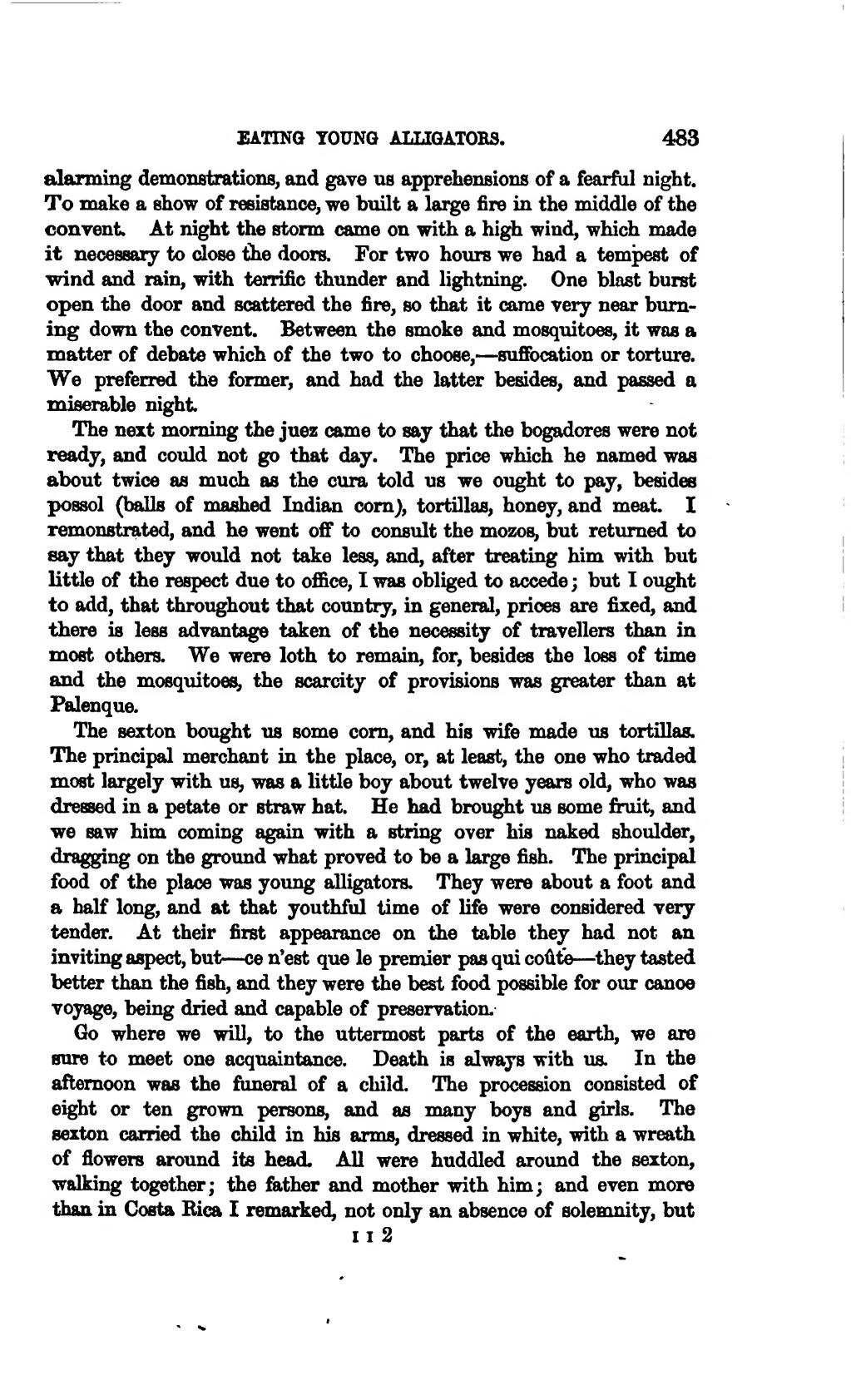alarming demonstrations, and gave us apprehensions of a fearful night. To make a show of resistance, we built a large fire in the middle of the convent. At night the storm came on with a high wind, which made it necessary to close the doors. For two hours we had a tempest of wind and rain, with terrific thunder and lightning. One blast burst open the door and scattered the fire, so that it came very near burning down the convent. Between the smoke and mosquitoes, it was a matter of debate which of the two to choose,—suffocation or torture. We preferred the former, and had the latter besides, and passed a miserable night.
The next morning the juez came to say that the bogadores were not ready, and could not go that day. The price which he named was about twice as much as the cura told us we ought to pay, besides possol (balls of mashed Indian corn), tortillas, honey, and meat. I remonstrated, and he went off to consult the mozos, but returned to say that they would not take less, and, after treating him with but little of the respect due to office, I was obliged to accede; but I ought to add, that throughout that country, in general, prices are fixed, and there is less advantage taken of the necessity of travellers than in most others. We were loth to remain, for, besides the loss of time and the mosquitoes, the scarcity of provisions was greater than at Palenque.
The sexton bought us some corn, and his wife made us tortillas. The principal merchant in the place, or, at least, the one who traded most largely with us, was a little boy about twelve years old, who was dressed in a petate or straw hat. He had brought us some fruit, and we saw him coming again with a string over his naked shoulder, dragging on the ground what proved to be a large fish. The principal food of the place was young alligators. They were about a foot and a half long, and at that youthful time of life were considered very tender. At their first appearance on the table they had not an inviting aspect, but—ce n'est que le premier pas qui coûte—they tasted better than the fish, and they were the best food possible for our canoe voyage, being dried and capable of preservation.
Go where we will, to the uttermost parts of the earth, we are sure to meet one acquaintance. Death is always with us. In the afternoon was the funeral of a child. The procession consisted of eight or ten grown persons, and as many boys and girls. The sexton carried the child in his arms, dressed in white, with a wreath of flowers around its head. All were huddled around the sexton, walking together; the father and mother with him; and even more than in Costa Rica I remarked, not only an absence of solemnity, but
